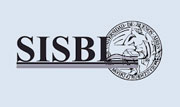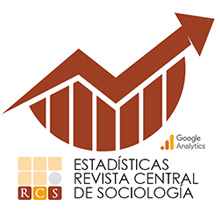La Copa Mundial de la FIFA: un análisis de Sudáfrica, Brasil y Rusia
Palavras-chave:
Brasil, Rusia, Sudáfrica, encuadre mediático, megaeventos deportivosResumo
El artículo analiza cómo los medios internacionales retrataron al país anfitrión en tres Copas Mundiales de la FIFA, Sudáfrica 2010, Brasil 2014 y Rusia 2018. La investigación analizó 5.085 artículos producidos por siete vehículos de cuatro países durante los eventos, utilizando el análisis del encuadre. El artículo tiene como objetivo comprender cómo los medios retrataron a estos países, las similitudes en la cobertura y las transformaciones ocurridas en el período. Los tres países presentan un caso de estudio interesante, ya que se consideran naciones en desarrollo que albergaron la Copa Mundial de la FIFA con un objetivo similar, mejorar su imagen internacional. La cobertura en Sudáfrica y Brasil está dominada por temas sociales como la desigualdad, la violencia y la pobreza, mientras que Rusia se centra en temas políticos expansionistas y la guerra.
Downloads
Referências
Aday, S., S. Livingston and., M. Hebert. 2005. “Embedding the Truth: A Cross-Cultural Analysis of Objectivity and Television Coverage of the Iraq War.” Harvard International Journal of Press/Politics 10 (1): 3–21. https://doi.org/10.1177/1081180X05275727
Alekseyeva, A. 2014. “Sochi 2014 and the rhetoric of a new Russia: Image construction through mega-events”. East European Politics, 30, 158–174. https://doi.org/10.1080/21599165.2013.877710
Bashir, M and., M. Fedorova. 2014. “Framing the pussy riot between the USA and Russia”. The Journal of International Communication, 21, 132–152. https://doi.org/10.1080/13216597.2014.978881
Brannagan, P M., R. Giulianotti. (2015). Soft power and soft disempowerment: Qatar, global sport and football’s 2022 World Cup finals. Leisure studies, 34(6), 703-719.
Carter, M. 2013. “Hermeneutics of frames and framing: An examination of the media’s construction of reality”. SAGE Open, 2, 1–12. https://doi.org/10.1177/2158244013487915
Castelletti, R. 2018, June, 13. “Uno de los principales cabecillas de los ultras rusos amenaza: “Los gais deben tener cuidado”. El Pais. URL:https://elpais.com/deportes/2018/06/13/mundial_futbol/1528890340_648520.html
Chuma, W. 2012. “Framing the Cape Town World Cup stadium in the media: The politics of identity and sports in South Africa”. Journal of African Media Studies, 4, 315–329. https://doi.org/10.1386/jams.4.3.315_1
De Almeida, BS., W. M. Júnior., E. Pike. 2014. “The 2016 Olympic and Paralympic Games and Brazil’s soft power”. Contemporary Social Science, 9(2), 271–283. https://doi.org/10.1080/21582041.2013.838291
de Vreese, C H. (2005).” News framing: Theory and typology”. Information Design Journal þ Document Design, 13, 51–62.
Eckstein, R., D. M. Moss and., K. J. Delaney. 2010. “Sports sociology’s still untapped potential”. Sociological Forum, 25(3), 500–518. https://doi.org/10.1111/j.1573-7861.2010.01193.x
Falkheimer, J. 2007. “Events framed by the mass media: Media coverage and effects of America’s cup preregatta in Sweden”. Event Management, 11(1), 81–88. https://doi.org/10.3727/152599508783943273
Favelas show hidden side of Brazil. 2014, June, 30. CNN. URL:https://www.cnn.com/videos/bestoftv/2014/06/30/newday-dnt-cuomo-favelas.cnn
Gao, F. 2010. “Politics/nationalism affect 2008 Olympics coverage”. Newspaper Research Journal, 31(4), 77–92. https://doi.org/10.1177/073953291003100408
Gibson, O. 2010, July, 12. South Africa leaves a World Cup legacy to remember. The Guardian. URL: https://www.google.com/url?client=internal-uds-cse&cx=007466294097402385199:m2ealvuxh1i&q=https://www.theguardian.com/football/blog/2010/jul/12/south-africa-world-cup-2010&sa=U&ved=2ahUKEwipgvqhquTjAhU3HbkGHXXpARIQFjAAegQIAhAC&usg=AOvVaw0JxKWXVLFZ1qv_9cKXvzmp
Graeff, B., D. Monteiro Gutierrez, T. Sardá., P. Bretherton and., M. Bettine (2019). “Capable, splendorous and unequal: international media portrayals of Brazil during the 2014 World Cup”. Third World Quarterly, 40(4), 796-814. https://doi.org/10.1080/01436597.2018.1526070
Grix, J and., D. Lee. 2013. “Soft power, sports mega-events and emerging states: The lure of the politics of attraction”. Global society, 27(4), 521-536. https://doi.org/10.1080/13600826.2013.827632
Grix, J and., B. Houlihan. 2014). Sports mega-events as part of a nation’s soft power strategy: The cases of Germany (2006) and the UK (2012). British Journal of Politics & International Relations, 16 (4), 572–596. https://doi.org/10.1111/1467-856X.12017
Gutierrez, D.M and., M. Bettine. 2020. The international journalistic coverage of the Rio de Janeiro Olympic Games: analysis by media framing. Sport in Society, 1-16. https://doi.org/10.1080/17430437.2020.1777105
Haller, B and., S. Ralph. 2001. “Not Worth Keeping Alive? News Framing of Physician-Assisted Suicide in the United States and Great Britain.” Journalism Studies 2 (3): 407–421. https://doi.org/10.1080/14616700119330
Hammett, D. (2011). “British media representations of South Africa and the 2010 FIFA World Cup”. South African geographical journal, 93(1), 63-74. https://doi.org/10.10520/EJC93356
Harrison, V.S and., J. Boehmer. 2020. “Sport for development and peace: framing the global conversation”. Communication & Sport, 8(3), 291-316. https://doi.org/10.1177/2167479519831317
Haynes, R and., R.Boyle. 2017. “The FIFA World Cup: Media, football and evolution of a global event”. In L. A. Wenner, & A. C. Billings (Eds.). Sport, media and megaevents (pp. 85–99). London
Hardman, R. 2018, June14. The sleaziest sporting event since the Berlin Olympics: With one crude gesture, Robbie Williams sums up the whole tawdry circus of Putin’s World Cup,. The Daily Mail. URL:https://www.dailymail.co.uk/news/article-5845925/With-one-crude-gesture-Robbie-Williams-sums-Putins-tawdry-circus-says-ROBERT-HARDMAN.html
Hodge, N. 2018, June, 29. Forget the football, Vladimir Putin is the real World Cup winner. CNN. URL: https://edition.cnn.com/2018/06/29/football/putin-world-cup-russia-intl/index.html
Horne, J and., G Whannel. 2010. “The ‘Caged Torch Procession’: Celebrities, Protesters and the 2008 Olympic Torch Relay in London.” Sport in Society 13 (5): 760–770. https://doi.org/10.1080/17430431003650950
Hugues, B. 2010, June, 11. Mondial : l’insupportable bourdonnement des vuvuzelas. Le Figaro. URL: https://www.lefigaro.fr/sport/2010/06/11/02001-20100611ARTFIG00750-mondial-l-insupportable-bourdonnement-des-vuvuzelas.php
Kelner, M. 2018, June, 15. ‘I think it’ll be all right’: England fans begin arriving in Volgograd. The Guardian. URL:https://www.theguardian.com/football/2018/jun/15/england-fans-begin-arriving-volgograd-first-match
Knüpfer, C.B and., R.M. Entman. 2018. “Framing conflicts in digital and transnational media environments”. Media, war & conflict, 11(4), 476-488. https://doi.org/10.1177/1750635218796381
“La hora de África” arranca en Johanesburgo con la gran fiesta del fútbol. 2010, June, 12. El Pais. URL:https://elpais.com/diario/2010/06/12/portada/1276293602_850215.html
Lauermann, J. (2016). “Politics as Early as Possible: Democratising Olympics by Contesting Olympic Bids.” In Protest and Resistance in the Tourist City, edited by C. Colomb and J. Novy, 210–226. New York, NY: Routledge
Lee. 2018, June, 15. I’m going to Russia to show LGBT fans it’s OK to be who you are. BBC. URL: http://www.bbc.co.uk/news/newsbeat-44371541
Lee, J.W. 2019. “Olympic Ceremony and Diplomacy: South Korean, North Korean, and British Media Coverage of the 2018 Olympic Winter Games’ Opening and Closing Ceremonies”. Communication & Sport. https://doi.org/10.1177/2167479519886544
Le Mondial des townships (2010, June, 11). Le Monde. URL:https://www.lemonde.fr/culture/article/2010/06/11/le-mondial-des-townships_1371401_3246.html
Mandraud, I. 2018, July, 16. La Russie tire profit du succès de « sa » Coupe du monde. Le Monde. URL:https://www.lemonde.fr/mondial-2018/article/2018/07/16/la-russie-tire-profit-du-succes-de-sa-coupe-du-monde_5332056_5193650.html
Manzenreiter, W. 2010. “The Beijing games in the western imagination of China: The weak power of soft power”. Journal of Sport and Social Issues, 34, 29–48. https://doi.org/10.1177/0193723509358968
Masters, J. 2018, July, 5. The World Cup sexism that won’t go away -- and the female reporters on the front line https://edition.cnn.com/2018/07/04/football/world-cup-female-journalist-harassment-spt-intl/index.html
Misener, L. (2013). “A media frames analysis of the legacy discourse for the 2010 Winter Paralympic Games”. Communication & Sport, 1(4), 342-364. https://doi.org/10.1177/2167479512469354
Miller, A and., S.D. Ross. 2004. They are not us: Framing of American Indians by the Boston Globe. The Howard Journal of Communication, 15, 245–259. https://doi.org/10.1080/10646170490521716
Meier, H. E., M. Mutz., J. Glathe., M. Jetzke, and., M. Hölzen. 2019. Politicization of a Contested Mega Event: The 2018 FIFA World Cup on Twitter. Communication & Sport, 216747951989257. https://doi.org/10.1177/2167479519892579
Ogunyemi, O. 2018. “Shaping the perception of African conflicts through framing: A case study of the African diasporic press in the UK”. Media, War & Conflict, 11(4), 421-433. https://doi.org/10.1177/1750635218779918
Panagiotopoulou, R. (2011). Hosting the Olympic Games. From promoting the nation to nation-branding. In A. Tomlinson, C. Young, & R. Holt (Eds.). Sport and the transformation of modern Europe. States, media and markets, 1950–2010 (pp. 150–170). Abingdon, Oxon: Routledge.
Pan, Z and., G. Kosicki. 1993. “Framing Analysis: An Approach to News Discourse.” Political Communication 10 (1): 55–75. https://doi.org/10.1080/10584609.1993.9962963.
Riffe, D., S. Lacy and., F. Fico. 2014. Analyzing media messages: Using quantitative content analysis in research (3rd ed.). New York, NY: Routledge.
Rookwood, J. 2019. Access, security and diplomacy: Perceptions of soft power, nation branding and the organisational challenges facing Qatar’s 2022 FIFA World Cup. Sport, Business and Management: An International Journal, 9(1), 26-44. https://doi.org/10.1108/SBM-02-2018-0016
Roth, A. 2018, June, 14. ‘It barely feels like Moscow right now. People are smiling’. The Guardian. URL:https://www.theguardian.com/football/2018/jun/14/russia-world-cup-2018-saudi-arabia-football-fan-colour-moscow-streets
Shin, H., S. Lee and., S. Lee. 2016. How mass media frames the mega sporting event: the case of the 17th Incheon Asian Games 2014. Journal of Physical Education and Sport, 16(2), 345–360
Sanderson, J., M. Weathers., A. Grevious., M. Tehan and.,S. Warren. 2016. A hero or sissy? Exploring media framing of NFL quarterbacks injury decisions. Communication & Sport, 4(1), 3-22.
Schallhorn, C. (2019). “The land of football”: An analysis of media coverage of the 2014 FIFA World Cup and its effects on people’s perceptions of Brazil. International Journal of Intercultural Relations, 72, 25-35.
Schallhorn, C. (2020). Samba, sun and social issues: How the 2014 FIFA World Cup and the 2016 Rio Olympics changed perceptions of Germans about Brazil. International review for the sociology of sport, 55(5), 603-622.
Scheufele, D A, Tewksbury, D. (2007). Framing, agenda setting, and priming: The evolution of three effects models. Journal of Communication, 57, 9–20.
Seippel, O, Broch, TB, Kristiansen, E, Skille, E, Wilhelmsen, T, Strandbu, A, Throjussen, IM. (2016). Political framing of sports: The mediated politicisation of Olso’s interest in bidding for the 2022 Winter Olympics. International Journal of Sport Policy and Politics, 8, 439–453.
Torrado, S. (2018, June, 20). El comportamiento de la hinchada colombiana en Rusia avergüenza al país. El Pais. URL: https://elpais.com/internacional/2018/06/20/billete_a_macondo/1529447143_733341.html
Tuchman, G. (1976). Telling stories. Journal of Communication, 26, 93–97.
Visit Russia for World Cup, but be careful, says anti-racism watchdog. (2018, June, 12). The Daily Mail. URL: https://www.dailymail.co.uk/wires/reuters/article-5836267/Visit-Russia-World-Cup-careful-says-anti-racism-watchdog.html
Why the sound of the Vuvuzela trumpet is the symbol of South African football (2010, June, 12). The Daily Mail. URL: https://www.dailymail.co.uk/travel/article-1286740/World-cup-2010-South-Africa-claims-vuvuzelas-essential-avoid-ban.html
Yoon, L, Wilson, B. (2019). Journalism, environmental issues, and sport mega-events: A study of South Korean media coverage of the Mount Gariwang development for the 2018 PyeongChang Winter Olympic and Paralympic Games. Communication & Sport, 7(6), 699-728.
Zaharopoulos, T. (2007). The news framing of the 2004 Olympic Games. Mass Communication & Society, 10(2), 235-249.
Publicado
Como Citar
Edição
Seção
Licença

Este trabalho está licenciado sob uma licença Creative Commons Attribution-NonCommercial-ShareAlike 4.0 International License.
















